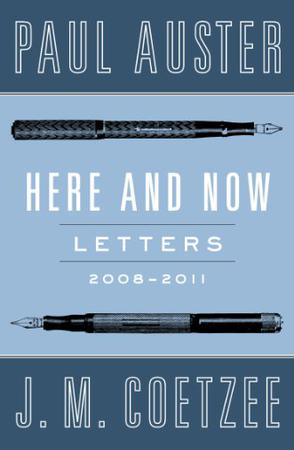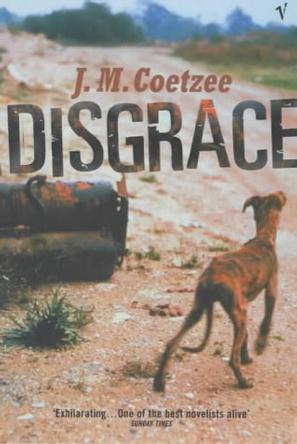-

Youth
Youth's narrator, a student in 1950s South Africa, has long been plotting an escape from his native country. Studying mathematics, reading poetry, saving money, he tries to ensure that when he arrives in the real world he will be prepared to experience life to its full intensity, and transform it into art. Arriving at last in London, however, he finds neither poetry nor romance. Instead he succumbs to the monotony of life as a computer programmer, from which random, loveless affairs offer no relief. Devoid of inspiration, he stops writing and begins a dark pilgrimage in which he is continually tested and continually found wanting. Set against the background of the 1960s, Youth is a remarkable portrait of a consciousness turning in on itself. J. M. Coetzee explores a young man's struggle to find his way in the world with tenderness and a fierce clarity. (20021018) -

Here and Now
The high-spirited correspondence between New York Times bestselling author Paul Auster and Nobel laureate J. M. Coetzee Although Paul Auster and J. M. Coetzee had been reading each other’s books for years, the two writers did not meet until February 2008. Not long after, Auster received a letter from Coetzee, suggesting they begin exchanging letters on a regular basis and, “God willing, strike sparks off each other.” Here and Now is the result of that proposal: the epistolary dialogue between two great writers who became great friends. Over three years their letters touched on nearly every subject, from sports to fatherhood, film festivals to incest, philosophy to politics, from the financial crisis to art, death, family, marriage, friendship, and love. Their correspondence offers an intimate and often amusing portrait of these two men as they explore the complexities of the here and now and is a reflection of two sharp intellects whose pleasure in each other’s friendship is apparent on every page. -

Disgrace
A divorced, middle-aged English professor finds himself increasingly unable to resist affairs with his female students. When discovered by the college authorities, he is expected to apologise and repent in an effort to save his job, but he refuses to become a scapegoat in what he see as as a show trial designed to reinforce a stringent political correctness. He preempts the authorities and leaves his job, and the city, to spend time with his grown-up lesbian daughter on her remote farm. Things between them are strained - there is much from the past they need to reconcile - and the situation becomes critical when they are the victims of a brutal and horrifying attack. In spectacularly powerful and lucid prose, Coetzee uses all his formidable skills to engage with a post-apartheid culture in unexpected and revealing ways. This examination into the sexual and poliitcal lawlines of modern South Africa as it tries desperately to start a fresh page in its history is chilling, uncompromising and unforgettable.